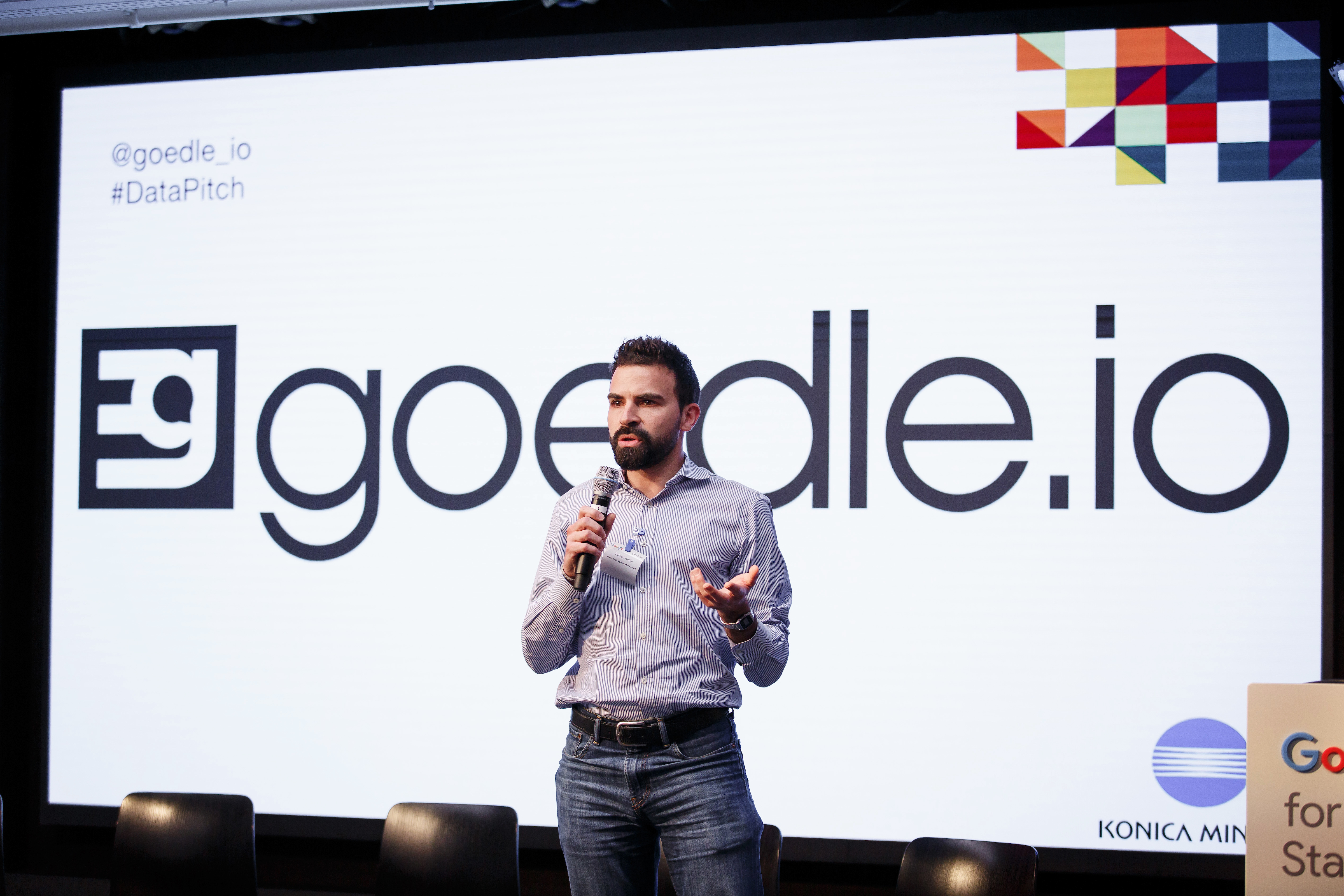Goedle.io tell us about their aspirations for Data Pitch and beyond.
Predicting and meeting the needs of customers is the ultimate challenge for any company. In the Business to Business (B2B) sector, answering the needs of a large, multifaceted company is a particularly complex process to navigate.
Germany-based startup Goedle.io uses Machine Learning (ML) to predict customer behaviour. We spoke to Co-Founder and CEO Fabian Hadiji about their plans for Data Pitch.
What do you hope to achieve on the Data Pitch accelerator?
We’re looking forward to working together with our data provider, Konica Minolta on an interesting data challenge. We plan to extend our technology to a new use case and we’re eager to test how our machine learning framework can be used to enhance their B2B sales.
What shared data will you work with and how will you use it?
Konica Minolta is a multinational technology company specialising in IT infrastructure and security on the Customer Needs Prediction Challenge (creating adaptive ways to anticipate customer requirements). The data consists of historic sales data which includes orders, product details, and other transactions.
We will initially use the historic data to train a ML model. Once the model has been trained, real-time data will be used to make predictions about future customer behaviour and needs, including churn prediction, lifetime value prediction, sales forecasting, and predictions about when a customer is likely to reorder.
Why do you think it is important for startups to work with large scale data providers?
When developing solutions based on data or machine learning, many startups face a kind of “chicken-and-egg” problem. Without data, you cannot showcase your solution. Without a case study, it’s hard to convince customers that your solution will work, and therefore to obtain the data to test it. Working together with a large data provider gives us both a large amount of data and feedback on our solution.
What’s the best thing about working with data?
In our field of application, data helps us to make objective decisions, and machine learning helps us discover options that were previously hidden. Predictive analytics reveal insights that are valuable to making strategic business decisions – and they can also be surprising!
If you could change one thing about the data ecosystem what would it be?
In many cases, data still exists in non-standardised structures and is stored in outdated databases or proprietary formats. This makes it challenging to retrieve and process it. If we started to adhere to well-defined specifications, for example for e-commerce or B2B SaaS, then we can gain even more benefits from available data.

